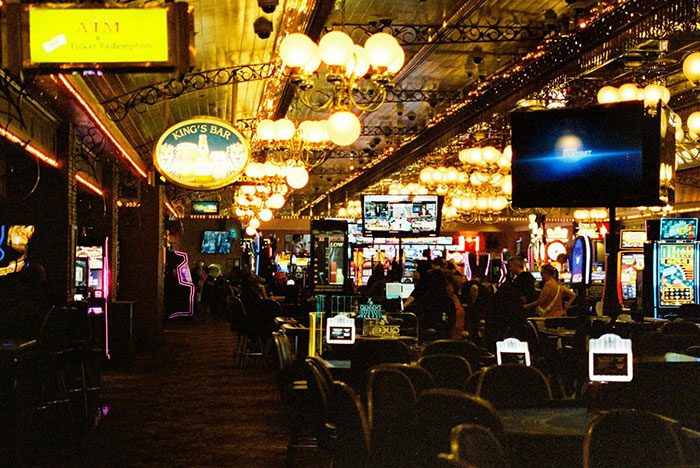What Makes a Casino Safe or Unsafe?

The line between a legitimate casino and a risky one can be thin, but it’s there. Most players won’t notice it until something goes wrong — a frozen withdrawal, a rigged game, a sudden account ban. It’s the fine print that matters the most, but sometimes there are more obvious signs.
Licensing and Regulatory Oversight
There are licenses that mean something, like those from the UK Gambling Commission, Malta Gaming Authority, or even the ones issued in New Jersey and Ontario. These regulators check things that matter: how money’s handled, how games are tested, and whether the operator plays fair.
Sites that care about players playing where their money and data are genuinely protected are the ones ensuring responsible casino play happens and that the visitors get the most out of the experience. Djordje Todorovic curated a list of such places that invest in cybersecurity, server stability, and player privacy, as should be the industry standard.
Now, some casinos throw in logos from questionable offshore bodies or countries with nearly nonexistent enforcement. These “licenses” sound official but barely scratch the surface. They might not intervene when a player complains, or even worse, they might be owned by the same group running the casino. In those cases, you’re stuck with whatever they decide — and they rarely decide in your favor.
Transparent Terms and Withdrawal Policies
A lot of online casinos bury their worst behavior in the fine print. You might get a generous welcome bonus only to find a ridiculous list of conditions tied to it. Rollovers that feel impossible. Max bet rules that aren’t clearly explained. And then there are withdrawal terms that look fine until you try to cash out. Some casinos limit withdrawals to a few hundred dollars a week, dragging out large wins for months.
Good casinos don’t hide this stuff. They know that playing should not feel like work, but as entertainment. As simple as this may sound, many fail to grasp the basics. Quality casinos have their terms written in plain language, you can find them without hunting, and they respond quickly if you’ve got questions. If a site makes you chase down basic info, that’s usually not a great sign.

Game Integrity and Software Providers
Not every slot or table game is created equal. The best online casinos work with trusted software developers — names like NetEnt, Playtech, Evolution, and Microgaming. These companies test their games with independent auditors, use random number generators, and have reputations to protect.
But then you’ve got casinos running unknown or “in-house” games with no verifiable testing. No way to check if the outcomes are truly random, no public info on game returns. It’s not always that the games are rigged — though sometimes they are — but there’s no accountability if they are.
And here’s something a bit more subtle: look at how a casino handles bugs or crashes during play. Reputable sites have protocols for that. Shady ones? They’ll either blame your device or ignore you altogether.
Player Support and Responsiveness
You get a real sense of a casino’s priorities when you run into a problem and reach out. Casinos that care will respond quickly, clearly, and with actual solutions. The bad ones? They’ll send robotic responses, blame third parties, or just go quiet. And yes, sometimes they outright lie. Those that understand how to support players in an ever-evolving landscape are the ones that’ll get bookmarked.
It’s not only about availability, either. A live chat button means nothing if the person on the other end isn’t empowered to solve anything. You can test this pretty easily by asking simple questions before you deposit.
Payment Methods and Speed of Payouts
Casinos that drag their feet when it’s time to pay out, or start demanding extra verification after you’ve already sent documents — that’s a red flag. There’s a pattern with these places. Deposits go through instantly, but when you try to withdraw, suddenly it’s a problem.
Safe casinos offer a variety of payment methods, from credit cards to e-wallets to crypto in some cases. The method isn’t the issue — it’s how the casino handles the process. Reliable operators process most withdrawals within 24 to 48 hours. Some even faster. And the best ones don’t invent last-minute “security checks” to stall your money. Casinos that consistently delay withdrawals or change rules after the fact? Usually not acting in good faith.
Security of Player Data
This part’s easy to overlook, especially since you can’t see what’s happening behind the curtain. But it matters. A secure casino will use SSL encryption, two-factor authentication, and store your documents safely. They won’t ask for unnecessary data or make you upload sensitive info more than once. As gamers feel unsafe about personal info, it’s up to reputable businesses to restore that trust.
Now, not every small site has the budget to build ironclad systems, but the effort shows. The tone of their requests, how they word their emails, and how often they ask for re-verification — all of it paints a picture. If it starts to feel sloppy or invasive, something’s off.
Reputation and Community Feedback
Word of mouth still matters. Forums, Reddit threads, casino review sites — they all tell a story. And while you shouldn’t believe every angry review (some people just don’t read the terms), if a casino gets the same complaints again and again, that’s worth paying attention to.
You’ll see patterns: slow payments, unexplained account closures, frozen balances. When that stuff shows up more than once or twice, it’s not a coincidence. Reputable casinos tend to build a base of loyal players who defend them. The sketchy ones? Mostly radio silence or bad buzz.
The views and opinions expressed by the writers and columnists of Casino Player, Strictly Slots, and Casinocenter.com do not necessarily reflect those of the magazine’s management. All content is intended solely for entertainment and informational purposes. Gambling may be illegal in some jurisdictions—it is the responsibility of each visitor to check and comply with local laws before participating in online gaming. Always read the terms and conditions, and gamble responsibly.


